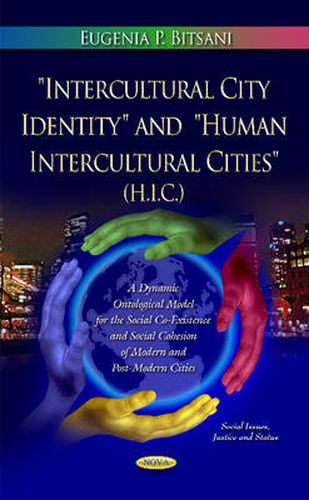Readings Newsletter
Become a Readings Member to make your shopping experience even easier.
Sign in or sign up for free!
You’re not far away from qualifying for FREE standard shipping within Australia
You’ve qualified for FREE standard shipping within Australia
The cart is loading…






This book negotiates the complex relationship between the identity of modern multicultural city and its development as well as its social cohesion, on the horizon of globalisation and crisis. Specifically, it expounds on an interdisciplinary approach regarding the actual phenomenon of multiculturalism in contemporary cities. The relationships created within this context between the different cultural groups and their impact on the city itself are described. It relates the concepts of identity and diversity and their effects on the socio-economic development of the city. In addition, it also relates to social cohesion existing in urban areas, plus the dynamics of relationships developed within a complex context. All within the context of political science, sociology and management science, while combining the scientific theory of cultural landscape, cultural theory, systemic analysis and sustainable development in an original theory is created, the intercultural identity of the city . What is more, while intercultural identity is the keystone of this hypothesis, it proposes the creation of a specific model planning of sustainable development and social cohesion in the modern and post-modern cities of the future. This is ongoing research which aims to deepen the understanding and interconnection between networks and cities’ identities, but also strives to develop the methodology acquired from the feedback and information that will emerge from the implementation of this model in real life.
$9.00 standard shipping within Australia
FREE standard shipping within Australia for orders over $100.00
Express & International shipping calculated at checkout
This book negotiates the complex relationship between the identity of modern multicultural city and its development as well as its social cohesion, on the horizon of globalisation and crisis. Specifically, it expounds on an interdisciplinary approach regarding the actual phenomenon of multiculturalism in contemporary cities. The relationships created within this context between the different cultural groups and their impact on the city itself are described. It relates the concepts of identity and diversity and their effects on the socio-economic development of the city. In addition, it also relates to social cohesion existing in urban areas, plus the dynamics of relationships developed within a complex context. All within the context of political science, sociology and management science, while combining the scientific theory of cultural landscape, cultural theory, systemic analysis and sustainable development in an original theory is created, the intercultural identity of the city . What is more, while intercultural identity is the keystone of this hypothesis, it proposes the creation of a specific model planning of sustainable development and social cohesion in the modern and post-modern cities of the future. This is ongoing research which aims to deepen the understanding and interconnection between networks and cities’ identities, but also strives to develop the methodology acquired from the feedback and information that will emerge from the implementation of this model in real life.